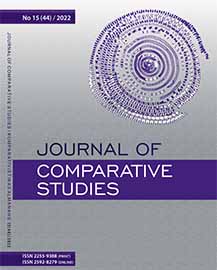Esotericism and the East: Introduction
Esotericism and the East: Introduction
Author(s): Birgit Menzel, Anita Stasulane, Ilze KačāneSubject(s): Sociology of Religion
Published by: Daugavpils Universitātes Akadēmiskais apgāds “Saule”
Keywords: esoterism; Eurocentric myth; Judeo-Christian tradition;
Summary/Abstract: The East-West dichotomy, around which research in philosophy, religious studies, literary theory, and cultural studies have rotated for centuries, is a construction that has divided the world into two parts: the West, meaning Europe, and America with their dominating Judeo-Christian tradition, and the East, which begins beyond the space of Judeo-Christian practices. The economic, social, and political reality of today's world provides evidence of the collapse or restructuring of this bipolar world. Current socio-political and cultural processes offer the opportunity to dispute nearly every major Eurocentric myth prevalent in mainstream economic history (Hobson 2004), and attempts to rescue the history of non-Western civilizations are continually increasing, emphasizing that the Orient came first and the Occident was a latecomer (Nederveen Pieterse 2006, 62). To overcome conventional Eurocentric approaches to history, but also due to the revolution in communication technologies, which has led to an almost instantaneous flow and exchange of information, many recent publications from the humanities and social sciences propose to take a global perspective on the human past (Conrad 2016). The constructed West-East dichotomy is currently being replaced by attempts at a new understanding of the complex structure of the world's cultural processes.
Journal: Komparatīvistikas almanahs
- Issue Year: 2022
- Issue No: 15(44)
- Page Range: 8-14
- Page Count: 7
- Language: English

